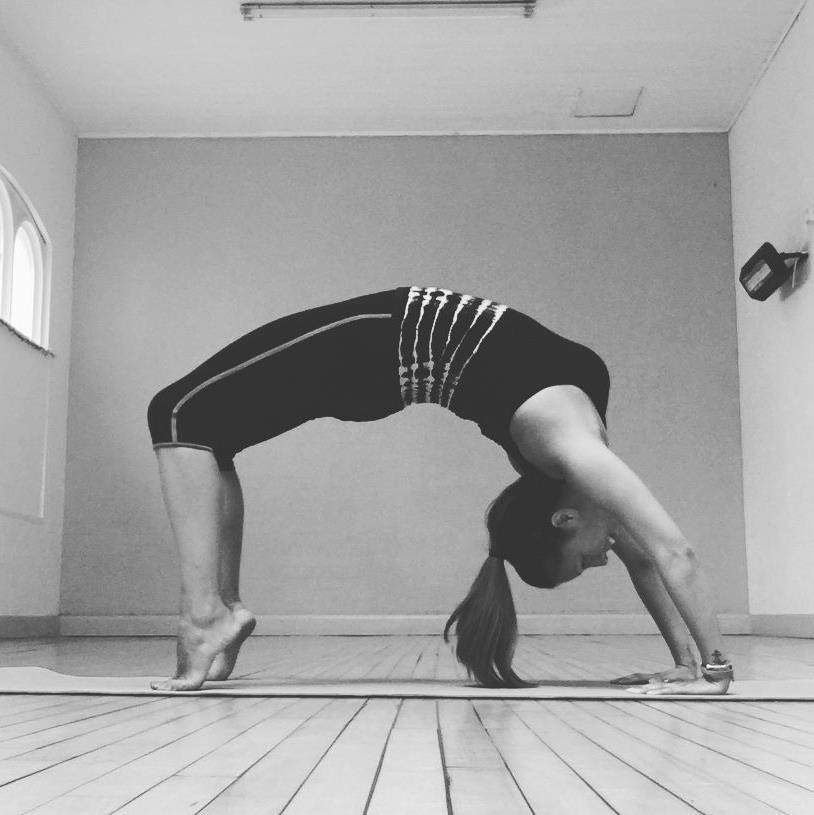I don’t know about you but, at times, those adverse or demanding circumstances seem to be a daily occurrence and the stress is overwhelming. At work you’re constantly juggling; clients, deadlines, birthday kitties, social media content etc. At home you’re multi-tasking even more; managing family time, ensuring we RSVP to that party, taking care of the dog. And these ever-expanding daily to-do lists will and do take their toll.
April is Stress Awareness Month so I thought it would be a good idea to (reluctantly) step away from my to-do lists, and think about how together we can best reduce the stress caused by these “demanding circumstances”. When I’m not working at NGI Solutions I also teach yoga (including a regular Friday class across the road at PROTO) so here are a few of my top tips for dealing with stress.
1. Breathe in calm, breathe out stress
For most of us breathing comes naturally but when was the last time you took an actual deep breath? Unless you practice yoga and/or meditation, you probably aren’t practicing diaphragmatic breathing, however deep breathing has been shown to reduce anxiety, tension, feelings of irritability – in other words – stress. So, let’s practice:
Sit in a comfortable position with a tall spine, hands on your stomach, chin slightly tucked (or lie down with your right hand on your stomach and your left over your heart), soften your gaze or close your eyes and just be for a moment. Notice any thoughts or feelings of stress and let them pass by and exit the mind as quickly as they entered.
Inhaling through your nose breathe in for five seconds. Begin to deepen your breath and expand your belly, feel your hands part as you do so. Exhale smoothly and with control out of your nose for five seconds. Notice how your body feels – there shouldn’t be any tension in your shoulders, neck, jaw or face.
After a few rounds place your hands on the outside of your ribcage and move the breath up to this area, feeling your ribcage expand outwards as you count internally to five and out for five.
Next, place your hands on the top of your chest and repeat – this style of breathing is likely to feel the most natural.
Now you can combine all three – as you inhale, expand your belly deeply, feeling the breath move up to the ribcage and finally feeling the rise of your chest. If you feel you can, increase the count to eight. Slowly and calmly exhale through your nose letting any stress and tension go.
2. It’s all about perspective
The most important thing to remember when falling into a stress rabbit-hole of unticked lists, outstanding debts, and negativity is perspective. Despite the amount of stress you might be feeling, there are very, very few tasks that will be world-ending ones if they don’t get done today.
The philosophy attached to yoga practice teaches self-study, non-violent thoughts and actions, serving others, contentment, and meditation. These skills relieve stress by helping us to gain perspective as to major life events such as expanding your family, moving to a new house, starting a new business, and sadly loss. Why? It makes you take a step back and look at your life with fresh eyes (and take a breath).
If yoga isn’t for you or you find it difficult to take that step back and analyse (which is perfectly normal) a great read is the regrets of dying which touches me every single time I read it.
3. Apples aren’t oranges – and they don’t stress about it!
Again, not just confined to your workplace, comparing yourselves to others is incredibly detrimental and will cause stress and feelings of negativity – even worthlessness. We are all unique and the more we realise this, the better we will feel. Apples aren’t oranges and you don’t see them complaining or striving to be the other.
How many times have you said things like;
‘I just need to shift these last 4lbs and I’ll be happy.’
‘Earning more money will make me happy.’
‘Once I’m in a relationship. I’ll be happy.’
These unhealthy thoughts cause unnecessary stress – it’s time to change the narrative.
To really navigate the highs and lows of life, a daily gratitude practice can work wonders. There are a lot of gratitude apps out there to help you (there are apps for everything – but more of that later).
If you prefer something physical try writing down three things that you are grateful for. If you’re pressed for time list them in your head when you first wake up. These could be as simple as;
‘I am so thankful that I woke up this morning.’
‘Wow, I have a lot of meetings today, people must really respect my opinion at work.’
A daily gratitude practice has been proven to reduces stress and aid productivity and effectiveness in the workplace, and long term studies have also proven it’s better for your overall well-being. Plus if it’s good enough for Oprah, Arianna Huffington and Tony Robbins, then it’s good enough for us.
4. Do a stress MOT
Signs of stress include; feeling irritable, snapping, trouble sleeping, headaches, muscle pain, even dizziness. We are often so blinded by our to-do lists that we don’t recognise the signs. That’s when an unbeknown telesales worker will feel the wrath or you’ll take it out on your loved ones.
Regularly acknowledging how you are feeling, both mentally and physically, and recognising the signs of stress will help alleviate some of the symptoms – our mind is a powerful thing. Chastising yourself won’t do anyone any good, remember non-violent thoughts – simply just saying to yourself (or out loud) ‘I am experiencing symptoms of stress’ is a great starting point to feeling better. Acknowledgement can lead to action.
5. Screens = Stress
The smartphone – our entire lives on one device. I bet when you got your first mobile phone you didn’t imagine you would become so attached to an inanimate object? (although Snake was pretty addictive, let’s be honest).
Look, we all know we need them –but being switched on 24/7 is disastrous for our stress levels. Scholars have likened smartphone addiction behaviour to that of hard drug use!
Most smartphones now have screen time monitoring built in so that you can limit usage of stress-inducing apps such as social media. For the real phone addicts you’re likely to just unblock the app and continue your endless scrolling. If that sounds like you, you might want to consider deleting the apps off your phone to stop yourself incessantly checking notifications.
Another solid tip is not sleeping with your phone. Imagine waking up in the morning and not opening your emails/social/texts etc.? Can you feel your stress start to dissipate already? All it takes is the price of an alarm clock.
If you really want to kick the habit you need to work out why you’re so attached to it. Is it loneliness? Boredom? Finding the root cause (or causes) can help you change your behaviour and become less-dependent. If you’re really struggling with the amount of reliance you have on your device, there are additional resources here.
Note: We’ve included this point as it’s vital to managing stress levels, however, the irony of advising people to reduce their screen time while posting this on our website and social media isn’t lost on us!

